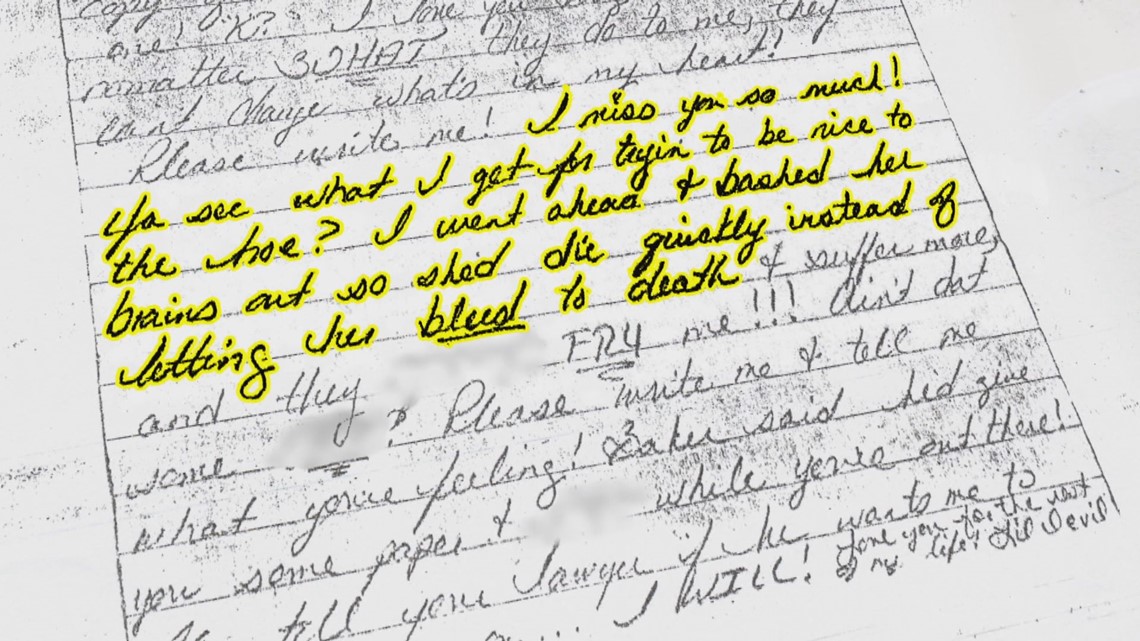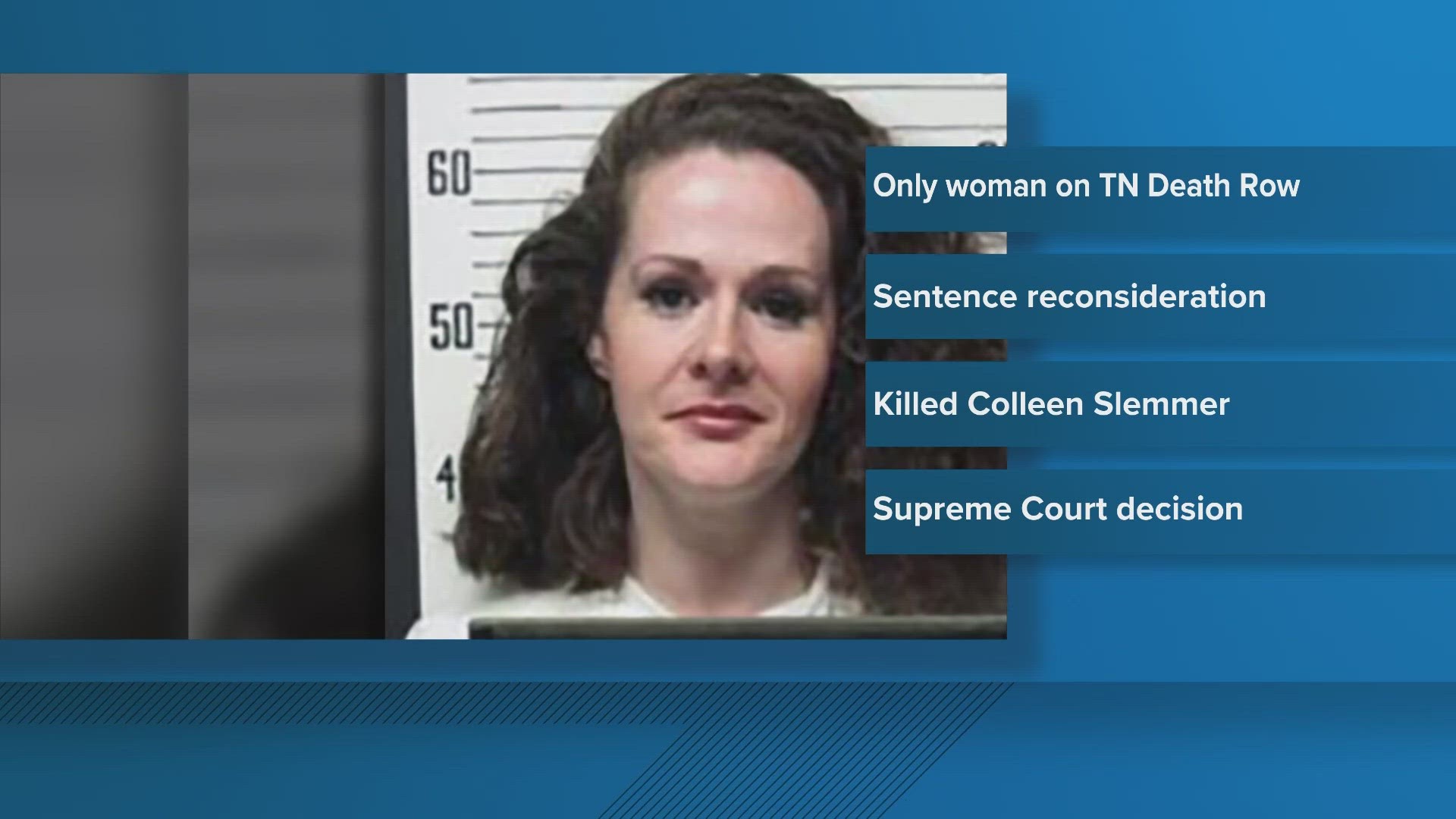KNOXVILLE, Tennessee — A Knox County judge has denied death row inmate Christa Gail Pike's bid to reopen her case, saying a recent state Supreme Court decision on harsh, mandatory punishment for juveniles doesn't apply to her.
In November, the state Supreme Court found that the state's law for juveniles automatically sentenced to life in prison without a chance at parole was unconstitutional. The court used a Knoxville case -- State v. Booker -- in making its ruling.
Lawyers for Pike, the only woman on death row in Tennessee, used that ruling this summer to try to reopen her bid to toss her 1996 conviction and sentence. They argued her youth and damaged mental health at the time of the killing should spare her facing execution.


Before the state Supreme Court's 2022 ruling, Pike had run out of appeal options.
Her lawyers filed their bid in Knox County Criminal Court, the same court out of which Pike was convicted and sentenced to death for killing fellow Knoxville Job Corps student Colleen Slemmer, 19.
The case fell to Criminal Court Judge Scott Green, who presides today over the division out of which Pike was convicted.
For Green, the decision was simple. He issued a written ruling Monday.
The Booker case addressed only juvenile offenders in Tennessee, Green noted. The high court, in the opinion written by now retired Justice Sharon Lee, specifically addressed the question of juveniles, not adults.
"This ruling applies only to juvenile homicide offenders—not to adult offenders," the decision states.
Knoxvillian Tyshon Booker was age 16 when he killed a man in 2015 in Knoxville, resulting in a life sentence.
PIke, however, was legally an adult, Green wrote.
She was two months shy of her 19th birthday in January 1995 when she and 17-year-old boyfriend Tadaryl Shipp of Memphis tortured and killed Slemmer, who Pike saw as a rival for Shipp's affections. All three lived at the Knoxville Jobs Corps Center on Dale Avenue, where they were supposed to be getting vocational training.
The pair lured Slemmer to a remote corner of the University of Tennessee agriculture campus near Tyson Park with the promise of smoking marijuana. Once they got there, they cut her, beat her, chased her down when she tried to run away and carved a pentagram into her chest.


When Pike became annoyed that Slemmer wouldn't die, she grabbed a piece of asphalt and started bashing her in the head. That's what killed the young Florida woman.
By Pike's own recollection the assault on Slemmer lasted 30 minutes to an hour. She readily acknowledged killing Slemmer and recalled that at one point she leaned down and asked the battered Slemmer if she knew who was attacking her.
Pike also kept a piece of Slemmer's skull as a souvenir after leaving her bloody, semi-nude body in a heap on the campus. She bragged about it the next morning to students at the Job Corps Center.
Co-defendant Shadolla Peterson was with Pike and Shipp the night of the attack, but prosecutors offered no proof that she assaulted Slemmer. Peterson ended up pleading guilty to being an accessory after the fact and getting a probationary sentence.
In reaching the high court's decision, Justice Lee wrote:
"The United States Supreme Court has made clear that under the Eighth Amendment, youth is a factor that must be considered in sentencing. Thus, we hold that Tennessee’s mandatory sentence of life in prison when imposed on a juvenile homicide offender with no consideration of the juvenile’s age and attendant circumstances violates the Eighth Amendment’s prohibition against cruel and unusual punishment."
The court found that the solution for Booker and other such juveniles sentenced to a mandatory life term was for them to become eligible for supervised release on parole after serving between 25 and 36 years. Eligibility, however, doesn't guarantee freedom.
PIke, 47, is awaiting execution at the Debra K. Johnson Rehabilitation Center, formerly the Tennessee Prison for Women. An execution date has not yet been set for her.
Lawyers will almost certainly appeal Green's ruling.
They released a statement Tuesday afternoon following Green's ruling:
“At the time of the crime nearly 30 years ago, Christa Pike was a teenager, just 18, with untreated severe mental illness and a history of severe, repeated physical and sexual abuse, violence, rape, and neglect that began when Christa was very young. Christa’s co-defendant, who was 17, will be eligible for parole soon. Yet Christa, who was just a few months older, may be executed. There is no difference in the brain of an 18 year old and a 17 year old. The trial court’s order refers to Christa as an adult, but brain science tells us she was a child. Christa’s death sentence is arbitrary and she should not be executed.”
Shipp, who turns 46 next month, is serving a life sentence with a chance for parole at the Northwest Correctional Complex in Tiptonville, Tenn.
Because he was a juvenile when convicted of Slemmer's murder, he couldn't be sentenced to death.
He's eligible for release starting in late 2026, according to the Tennessee Department of Correction.



